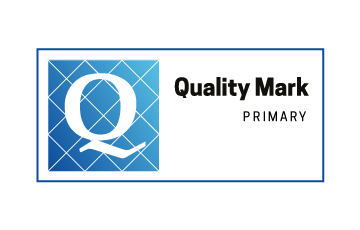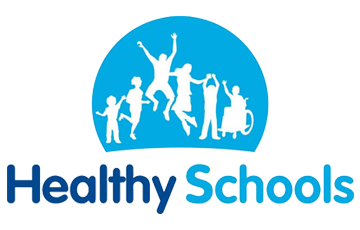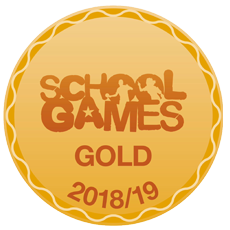Reading
Reading Curriculum Statement

“The more that you read, the more things you will know. The more that you learn, the more places you'll go.”
Dr Seuss
Intent
At Crow Orchard Primary school, we believe that reading is an integral part of the school curriculum and a fundamental life skill that impacts on all learning. Reading is a platform that allows our children to see beyond what they know, share in experiences, and develop the vocabulary they need to effectively express themselves.
We strive for our children to become avid readers, children who read fluently and widely and are able to express preferences and opinions about the texts that they read. We want them to read for pleasure, having had access to a wide range of text types, genres, and authors, in order for them to make informed opinions about their preferences. We want every child to love reading and want to learn to read for themselves. We ensure our children have access to a quality English curriculum that is both challenging and enjoyable for all readers.
We teach our children to be inquisitive readers, provoking thought and leading children to enjoy asking or being asked questions about the texts they are reading; allowing them to gain a deeper understanding of what they have read.
We have eight key priorities at Crow Orchard Primary School that underpin every subject area. We believe that by focusing on these key priorities our children will be ready to successfully meet the challenges of the next stage of their education and their lives.
 Implementation
Implementation
We recognise the importance of reading wide and often and so ensure our reading curriculum is broad and balanced. Stretching across a wide range of genres, we provide a variety of discreet and cross-curricular learning opportunities. In turn, this enhances our children’s vocabulary through exposure to high quality texts. Phonics is a crucial part of early reading and we are determined to ensure that our children become confident and fluent readers. We have a wide range of phonetically decodable books that support a cumulative progression in phonic knowledge and children are provided with plenty of opportunities to read and re-read books that match the grapheme-phoneme correspondences they know, both at school and at home.
Reading in the Early Years/ Reception
Reading in the Early Years/ Reception English is one of the seven aspects to the Early Years Framework, known as Literacy and is fundamental to enable a child’s successful development. The prime area, communication and language is nurtured and developed as this underpins a child’s development in the specific area, literacy. This will support the development of Reading and Writing as they progress throughout the rest of the school. In Reception, we encourage and promote reading throughout the curriculum to introduce children to new ideas, vocabulary and syntax and to develop children’s love of stories, poems, songs and rhymes. Children use books and props as part of their role-play, they seek out information linked to topics or to develop their own interests. They read to each other and to adults which exposes them to new reading experiences.
In Reception Year 1 and Year 2, we use Essential Letters and Sounds to teach phonics in a sequentially progressive order. Children are taught to develop their listening and attention skills as they are introduced to individual phonemes, starting with phase two. During daily phonics sessions, children are taught to distinguish between different phonemes as well as teaching them to segment and blend sounds in words to read them. In addition to this, we share a love of reading through various stories with all children. Every term, we focus on high-quality texts and provide opportunities for the children to sequence, retell and use role play to develop their own ideas of storytelling. During shared read sessions, the children build on their knowledge and understanding of reading and vocabulary as the adult models the enjoyment of reading and the understanding of vocabulary.
In Reception, we encourage our children to read every day with an adult. At Crow Orchard, we have carefully developed a reading curriculum whereby all classes are exposed to high quality texts, which are progressive throughout each cohort. Teachers use imaginative and creative planning to ignite children’s passion for reading throughout a range of lesson styles. For example, drama, role, and classroom discussion.
Reading in Key Stage 1
Throughout Key Stage One our reading sessions balance the teaching of reading between word reading, wider decoding skills, grammar for reading, wider comprehension strategies and response to text in order to develop fluent readers who understand what they are reading. Comprehension is taught from an early age to prevent comprehension difficulties arising as the language demand of the texts they encounter increases.
Reading takes place across Key Stage One daily within our ELS sessions. All children have daily opportunities to read decodable texts which are currently suited to their phonic ability. Children read to an adult as often as possible throughout the week and are immersed in high quality rich texts throughout the week. in the Spring term, Year 2 children will start using Reading VIPERS in preparation for their end of Key Stage Assessments.
In Key Stage 1 and Key Stage 2 class novels are read to the children.
Reading in Key Stage Two
Throughout Key Stage Two, our reading sessions take place at least three times a week for 30 minutes. Within these sessions our teachers model reading strategies during shared whole class reading sessions. These involve high quality, age-appropriate texts which are carefully selected by our staff. These are read to or with the children and provide an opportunity to teach children specific reading skills to widen their vocabulary and develop their levels of comprehension, as outlined in the National Curriculum. Questions are planned by teachers in advance to help children access a range of skills to help them to develop a greater understanding of a range of reading materials including fiction, non-fiction and poetry materials.
In our reading lessons, we use reading VIPERS (based on materials from ‘The Literacy Shed’) to help support our pupils to understand what a good reader looks like and how to approach answering reading questions.
VIPERS is an acronym which stands for:
Vocabulary
Infer
Predict
Explain
Retrieve
Sequence (KS1) or Summarise (KS2).
All children work on VIPERS during class reading whether this is reading as a class, in a small group or one to one with an adult. We encourage children to orally talk through their answers before formally recording their answers. Children do this in a variety of ways such as discussing the answer first with their peers and/or an adult and then writing their best answer.
All children have daily opportunities to read a variety of material in schools, including regularly with an adult. Within the school week, opportunities for reading is timetabled for both Key Stages.
We aim to promote a love of reading in our learning environments throughout Crow Orchard. All classrooms have a class reading area and or library with age-appropriate reading books for pleasure.
Home Reading
Every child is given a home reading book that they can take home and enjoy in their own time. We encourage all children to read at least three times a week, though many children exceed this. In Reception and Key Stage One, all children are given a decodable reading book which is specifically matched to the phonics phase they are working at. The books vary in several ways, including layout, size, vocabulary, and length, to give the children a rich diet of literature. We feel it is of hugely important for our children to receive home reading books matched directly to their phonics knowledge so that they become confident and fluent readers, before moving on to a greater difficulty. In addition to children taking home a fully decodable reading book, children are allowed to take home a ‘shared reading book’ which adults/older siblings can read to/with the children. After the children have successfully learned all sounds in phase two to five of Essential Letters and Sounds, they are then moved on to colour banded books.
In Key Stage Two, children receive a home reading book which is linked directly to their reading level. This is assessed regularly throughout the terms to ensure an appropriate level of challenge and skill to continue to improve their reading skills. Once the children become ‘free readers’ they can begin to choose their own reading books, either from the class library or a book from home. Again, this is carefully monitored by staff and parents, to ensure appropriate challenge and progression of reading.
Impact
At Crow Orchard, children learn to read fluently and effectively. They are confident children who can recommend books to their peers, have a thirst for reading a range of genres, participate in discussions about books, and appreciate the joy and wonder of reading. This is a lifelong skill which will make them secondary ready, and which they will take further into their adult lives.
The English Subject Champion is:

Mrs Jenna Smith

 Together
Together



